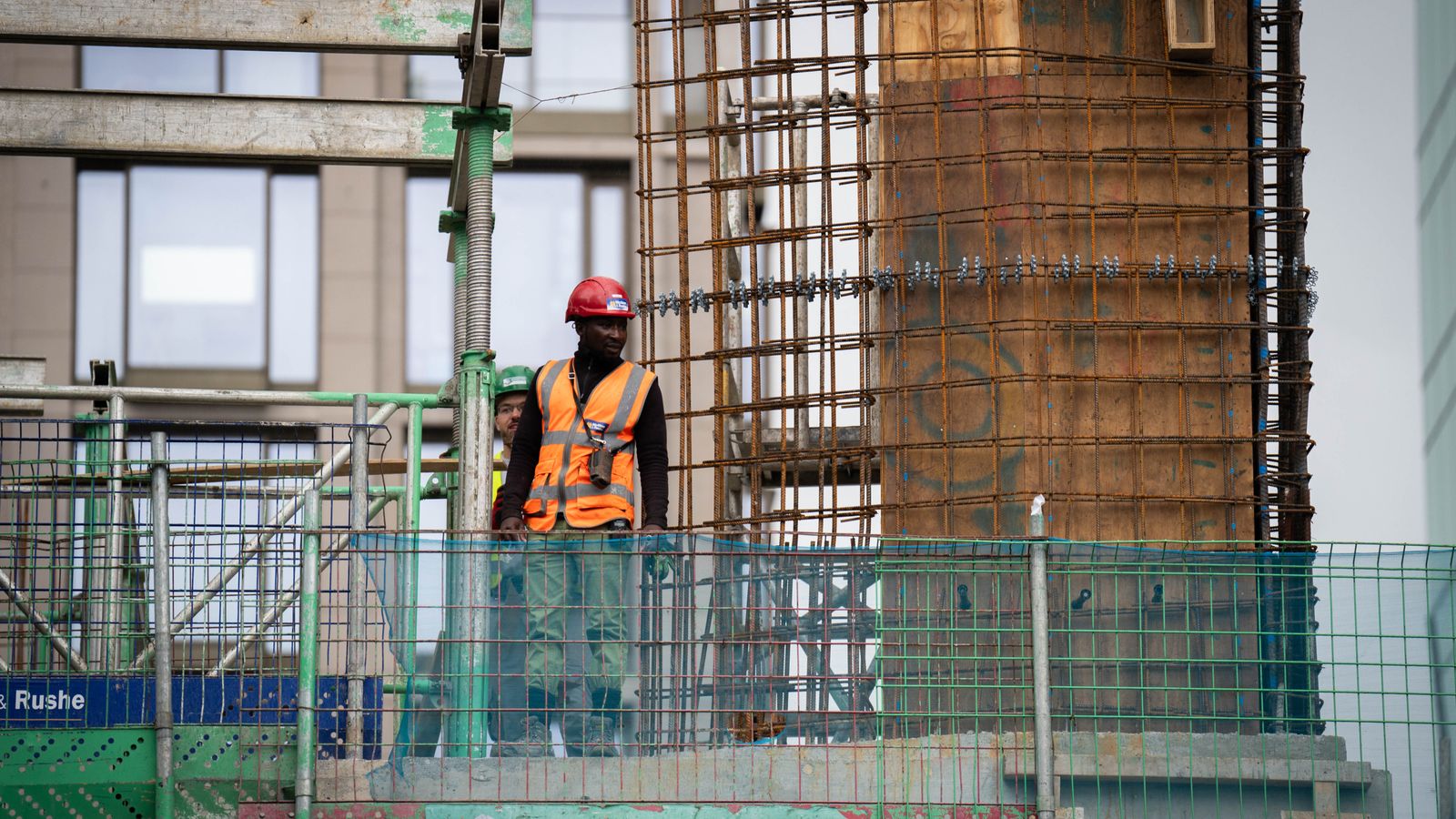The construction industry has bucked recent trends and returned to growth in July, according to a closely watched survey.
Just a month after UK housebuilding fell at the steepest rate in more than a decade – outside the pandemic years – commercial activity and civil engineering work grew, according to the S&P Global/CIPS construction purchasing managers’ index (PMI) for July.
The index, measuring construction activity, rose to 51.7 – the highest since February – and up from June’s five-month low of 48.9.
Any measure below 50 means contraction, while numbers above 50 demonstrate growth.
While housebuilding fell in the month, it was offset by the rise in corporate work.
Behind the corporate rise was “resilient demand for a range of commercial projects”, the index said.
Companies polled for the PMI said there were more office refurbishing jobs and infrastructure work.
A pinch point identified by firms was the rising cost of borrowing – hiked by the Bank of England to bring the pace of price rises down.
It has meant housebuilders reported fewer sales enquiries and slowed decision-making among prospective buyers.
This will mean residential builders will be selective on new starts, big four accountancy group PwC said, and focus on areas where there is greater confidence in demand.
While the pace of housebuilding contraction slowed – up to 43 from a three-year low of 39.6 last month – today’s PMI did mark eight months of contraction.
Read more:
Immigration rules relaxed to tackle construction worker shortage
Britain’s biggest housebuilder cuts construction target as storm clouds mount
Earlier in the week, sales at the UK’s third biggest housebuilder, Taylor Wimpey, fell along with profits in the first six months of 2023, as corporate results showed fewer houses were being bought.
But demand has been “remarkably resilient”, economic research firm Pantheon Macro said.
Commercial builders may have an economic cushion to protect them from the high borrowing hurts, the company added.
It said: “Corporates underinvested throughout the years of Brexit uncertainty and the COVID-19 crisis, and therefore have entered this period of monetary tightening with relatively little debt, excess cash and a wide range of capital projects that still are profitable to undertake even with higher borrowing costs.”
Reduced demand did benefit some parts of the construction sector as reduced competition for goods and services led to a slowed rate of building materials inflation, compared to the first six months of 2023.
The commercial activity index increased to 54.4, from 53 in June, and the civil engineering activity index strengthened to 53.9, from 53.1.
